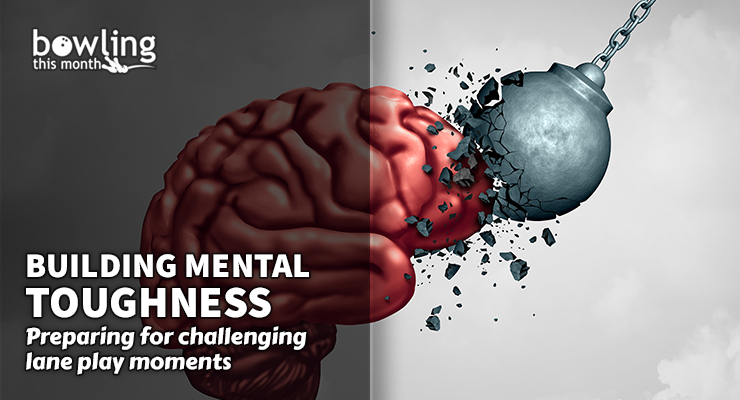Article Contents
- 1. Training activities to develop mental strength
- 1.1. Commit to emotional control
- 1.2. Make the uncomfortable comfortable
- 1.3. Daily post-practice journaling
- 2. A pre-competition process
- 3. In-competition interventions
- 3.1. Power pose
- 3.2. Engage the left hand
- 3.3. Breathing and closing your eyes
- 4. Post-competition strategies
- 5. Concluding remarks
- 6. References
Note: This article is only available to Bowling This Month subscribers.
Whether it involves making a cut, cashing, earning a trip to nationals, or winning a title, those who perform as close to their normal as possible in key stress-filled moments will be more likely to succeed.
I have had the privilege of coaching in major international and college tournaments, which are always filled with stressful moments. In preparing teams and individuals for these important events, the goal is to develop mental toughness over time and make being uncomfortable the normal. Truth be told, it is difficult to simulate the pressure and anxiety that is created during a sudden-death match where one has to throw a shot to move forward. If you lose, your season is done. The same holds true for those competing in a major event where one or two shots over the course of qualifying can lead to missing a cut, or where a key shot in match play can determine those who move on and those whose tournaments are abruptly brought to an end.
This article focuses on easy to implement mental game interventions to help you perform at a higher level in stressful competition settings. In addition, I’ll make some key daily and weekly training recommendations to help you build your mental strength over time.
Training activities to develop mental strength
When an individual becomes agitated, frustrated, or angry, it is impossible to think objectively with clarity. Clearly, improving one’s ability to control their emotions will lead to more consistent competition performance. Accordingly, a bowler’s practice mentality and actions are critical to building mental toughness for competition success.
To paraphrase a famous quote, athletes don’t rise up to the competition. Rather, they fall to the level of their training and the thoroughness of their preparations. Here are three important elements to consider for your ongoing training.
Commit to emotional control
When the tournament environment is easy, maintaining composure is easy. But being your best in a tournament requires one to be at their best when things become challenging, such as when encountering ...
Already a premium member? Click here to log in.


 (Only
(Only 